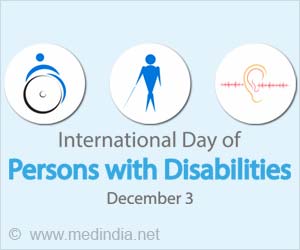The FDA-approved drug for Alzheimer’s disease, Leqembi, is poised to provide significant benefits to early-stage patients by reducing the disease’s progression.
- The U.S. Food and Drug Administration approved the drug Leqembi for Alzheimer’s Disease
- This approval was given following a determination that a confirmatory trial verified clinical benefit
- Leqembi is the first drug to work by reducing amyloid plaques that form in the brain
Memory Loss - Can it be Recovered?
Go to source), is the first drug that's been shown to slow the progression of Alzheimer's disease (AD), including declines in memory and thinking. This drug acts on the accumulated amyloid beta plaques in the brain, which is the main feature of AD.
Leqembi FDA Approval: Start of a New Era for Alzheimer's Treatment
It is estimated that approximately 44 million people worldwide are living with Alzheimer's disease or a related form of dementia. Despite these numbers, scientists have been searching for effective treatment and still don’t know what causes the disease, which is ultimately 100 percent fatal.Hence, Leqembi is considered a breakthrough in the treatment of Alzheimers disease, and researchers are proud to be at the forefront of entering a new era of advances for a disease that was previously considered untreatable.
It was only approved for patients with mild cognitive impairment or mild dementia, who have a confirmed presence of brain plaque called amyloid. It’s not a cure and doesn’t restore the memories of people afflicted with the disease (2✔ ✔Trusted Source
Lecanemab in Early Alzheimer's Disease
Go to source).
Late-stage trial data showed that the drug slowed down cognitive decline by about 27 percent over 18 months compared to a placebo. But the difference between patients and the placebo was small, which was not clinically significant.
Still, it is believed that the drug could stave off memory loss long enough to buy them a few extra months with family and loved ones. Leqembi’s approval will not help patients who are already past the early stages of the disease.
New Alzheimer’s Drugs Spark Hope and Cost Concerns for Patients
Since Leqembi is an infusion drug, enrollees are responsible for 20 percent of the cost after meeting a deductible. Patients may also be responsible for potentially tens of thousands of dollars worth of additional costs beyond the drug itself. It is unclear whether Medicare will pay for the cost of the medical visit or the regular brain scans needed to monitor a patient’s progress.The positive outcomes of Leqembi are tempered by a potentially serious side effect called amyloid-related imaging abnormalities (ARIA), usually asymptomatic and managed safely. But there have been serious and even fatal cases during the trial linked to the drug.
The FDA has instructed that “boxed warning” be included on the drug’s label to highlight the safety issues. Patients who are at higher risk of ARIA include those on blood thinners. The FDA recommended caution for clinicians who may consider prescribing Leqembi for those patients but did not advise against it.
The agency also said patients with two copies of a gene mutation linked to Alzheimer’s have a considerably higher risk of complications. The FDA recommended genetic testing but did not require it (3✔ ✔Trusted Source
FDA approves Alzheimer's drug lecanemab amid safety concerns
Go to source).
To Increase the accessibility of the drug, memory clinics around the country should be backed up with this drug. To even be eligible for Leqembi, patients need complex imaging or a spinal tap to confirm the presence of amyloid in the brain.
Once prescribed, they need to travel to get infusions every other week, as well as regular brain scans for monitoring. Large academic medical centers are likely the best equipped to handle those patients, which could be a barrier for rural patients.
There could be another anti-amyloid drug on the market soon. Eli Lilly has released promising initial results from a clinical trial of its new Alzheimer’s antibody treatment that were comparable to Leqembi.
The company is expected to release more detailed data later this month, and the FDA could approve it by the end of the year. The data on Aduhelm was conflicting and contradictory; while it appeared to remove plaque from the brain, it did not seem to slow the progression of the disease. Let us hope for more breakthroughs in the future.
References:
- Lecanemab Gains FDA Approval for Early Alzheimer Disease( https://jamanetwork.com/journals/jama/article-abstract/2800770)
- Lecanemab in Early Alzheimer's Disease( https://www.nejm.org/doi/10.1056/NEJMoa2212948)
- FDA approves Alzheimer's drug lecanemab amid safety concerns( https://www.nature.com/articles/d41586-023-00030-3)
Source-Medindia











